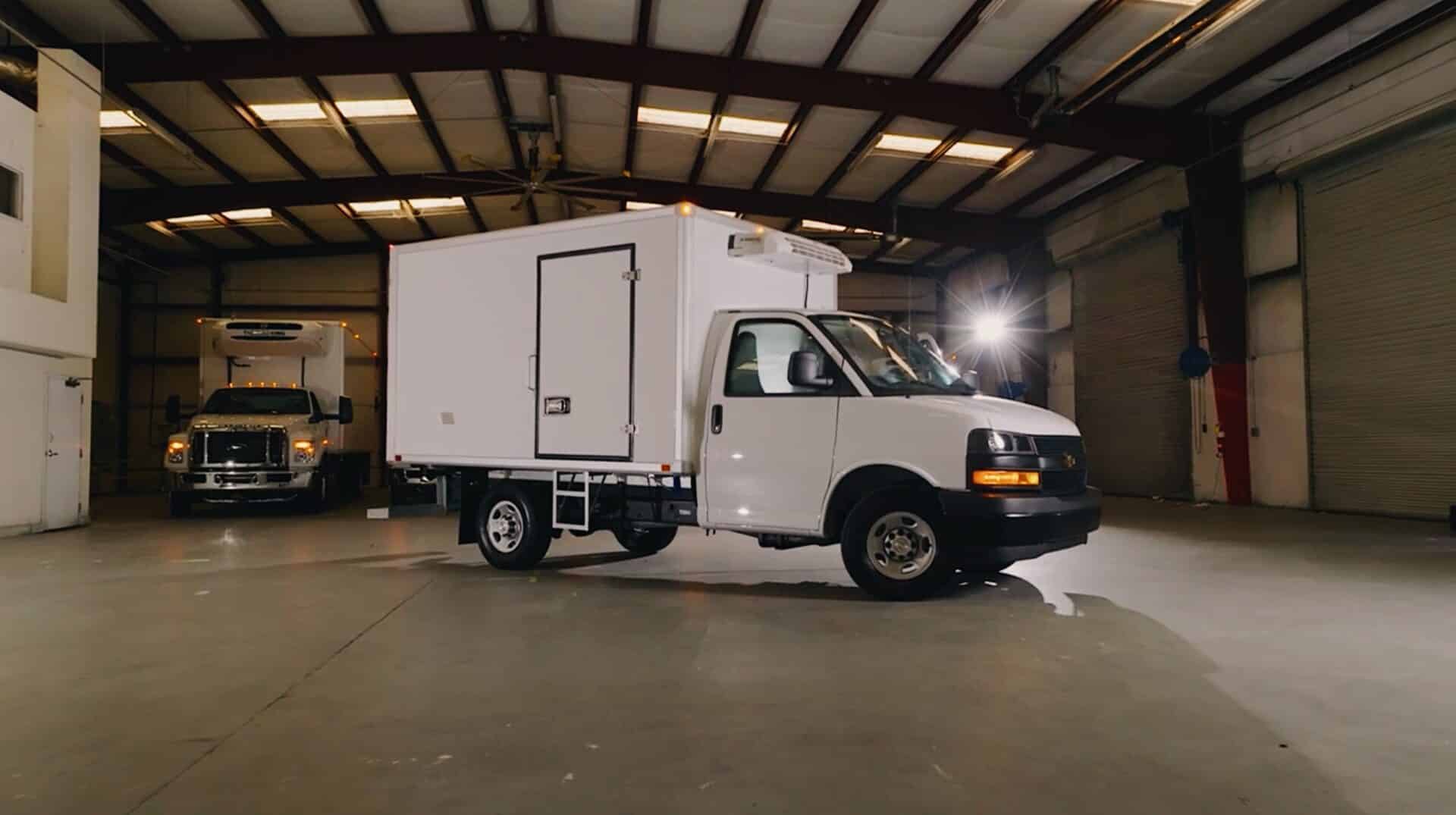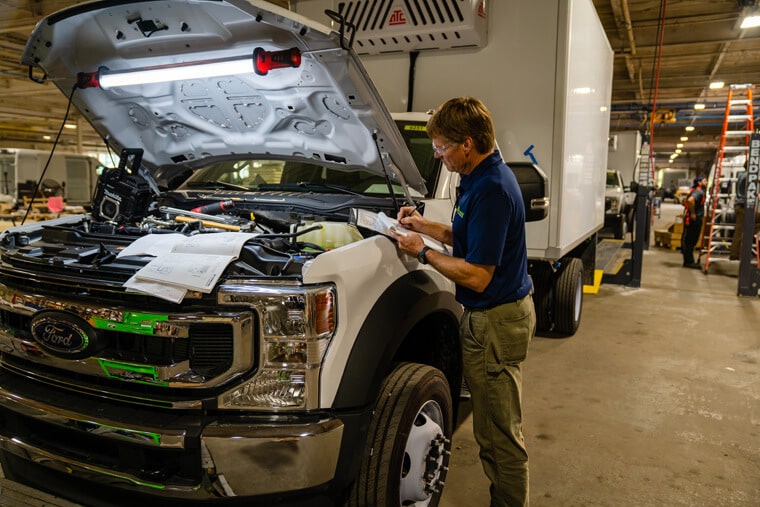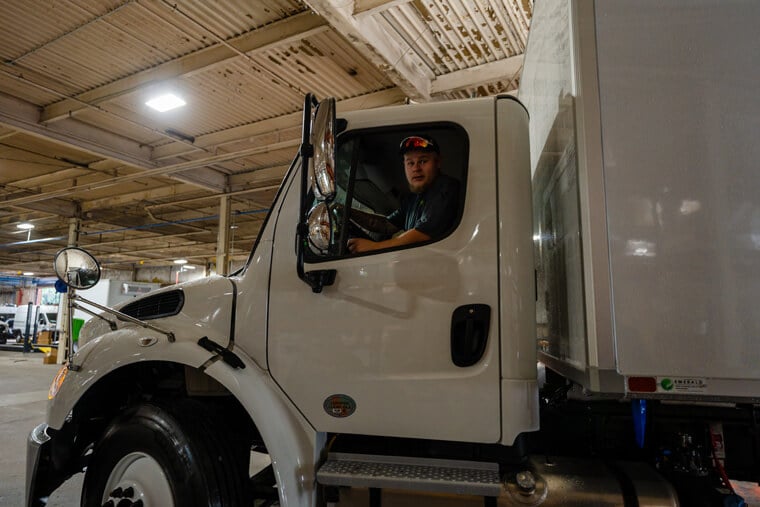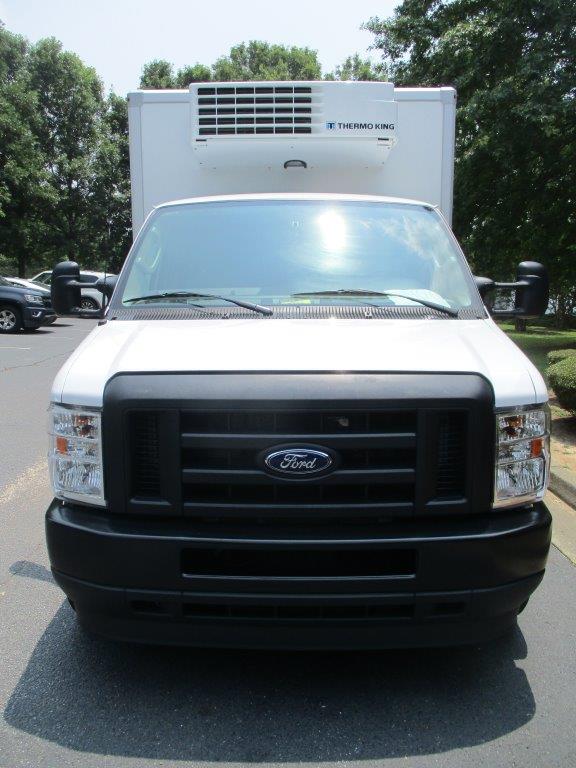
Refrigerated vs. Freezer Trucks: Deciding Which One Is Best for Your Fleet
Joe Dickman | September 9th, 2025
Between maintaining regulatory compliance with FSMA, evolving truck refrigeration unit (TRU) emissions regulations, and the need to protect product integrity, knowing when to deploy a temperature-controlled truck — either a refrigerated or freezer truck — is crucial in cold chain logistics. For fleet managers, understanding the differences between the two goes beyond the specs of the vehicles. When it comes to fleet operations, you must consider the long-term implications of operating and maintaining each vehicle.
Whether you’re in the market for new refrigerated vehicles or reevaluating your fleet mix, this guide will help you decide which option is best for your fleet operations.
What is the Difference Between a Refrigerated Truck and a Freezer Truck?
At first glance, there isn’t much that visually distinguishes a refrigerated truck from a freezer truck. But that’s where the similarities end. While both serve the same purpose — maintaining optimal temperature control of goods during transit — they play distinct yet vital roles, depending on the cargo, routes, and industries.
The Refrigerated Truck
A refrigerated truck, also known as a reefer truck, fridge truck, or refrigerated reefer truck, is designed to maintain temperatures above freezing, typically between 32°F and 55°F. These trucks have a TRU system — essentially a refrigerator for a truck— that controls the internal temperature, preventing spoilage and ensuring goods remain fresh during transit.

An Emerald multi-temp reefer truck featuring multiple insulated compartments.
Fleet managers can leverage sensors and fleet telematics to ensure that internal temperatures remain stable. Advancements in technology have also made it possible to remotely check the temperature of reefer trucks while in transit, ensuring that products arrive fresh at the required location.
Consequently, refrigerated trucks are ideal for transporting fresh fruits and vegetables, dairy products, or pharmaceuticals that must be kept cool but not frozen. Refrigerated trucks typically range from 16 to 28-foot box trucks to 53-foot semi-trailers, supporting both short-haul distribution and long-haul routes.
For smaller deliveries, such as local catering or pharmacy distribution, companies may instead use refrigerated pickups or vans — but we typically don’t classify these as reefer trucks. Read our blog on reasons to purchase a refrigerated van to learn the benefits of a reefer van compared to a truck.
Operating and maintenance costs for reefer trucks vary by size but are generally lower than those of freezer trucks. Expect to pay between $60,000 and $120,000 or more, depending on the unit size, payload capacity, and age of the truck.
The Freezer Truck
On the other hand, a freezer truck is designed to keep its contents at sub-zero temperatures. When you see one, think of it as a moving freezer. It’s perfect for transporting frozen goods, such as ice cream, frozen vegetables, and meats, that require a constant deep freeze environment.
As a result, the cooling systems in freezer trucks are more potent than those in refrigerated trucks, as they need to maintain much lower temperatures — often as low as -22°F. Freezer trucks also have more robust insulation and refrigeration units compared to reefer trucks.
Freezer trucks also have features that reefer trucks lack, such as systems for defrosting and preventing the freezing unit from icing up. Like reefers, freezer trucks are available in several sizes, sometimes referred to as truck freezers or trucks with freezers, and can support both long-haul and short-haul travel.
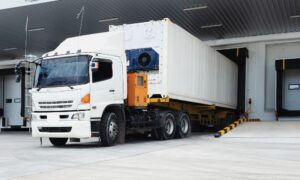
White Emerald Transportation freezer truck with defrosting capabilities.
Due to their robust insulation and freezing units, freezer trucks typically cost 10-20% more than standard refrigerated trucks. Likewise, the total cost of ownership for freezer trucks is higher as the TRU consumes more fuel and requires more maintenance for its specialized parts.
Reefer vs. Freezer Truck: Which One to Purchase
Despite these differences, both truck types serve an important purpose: to ensure the safe transportation of perishable goods by maintaining the desired temperature. So, whether you’re looking for a refrigerated van for sale or a freezer box truck, it’s essential to consider your specific transportation needs.
Before making your decision, determine the type of goods you’ll be transporting, the distance, and the environmental conditions you’ll be operating in. Additionally, pay close attention to maintenance and operational costs, as well as potential resale value.
Refrigerated trucks, for example, have a higher resale value than freezer trucks. Since demand for freezer trucks is lower, depreciation of these vehicles can be faster, even more so depending on the hours/mileage of the TRU unit. For more information, we suggest reading our guide on what to know before buying a refrigerated vehicle.
Prefer to get hands-on help?
Emerald Transportation Solutions offers an extensive range to meet your specific requirements. Our expertise and commitment to quality ensure that you get the right refrigerated vehicle for your needs. We cover everything from ready-to-order vehicles to customizable vans and trucks for your next transport project
Let’s drive success together. Contact us today.
Editor’s Note: This blog was originally published in May 2024 and has been updated for comprehensiveness in September 2025.
Related Articles
Contact Us
Feel Free To Contact Us If You Have Any Questions
What does under DOT mean?
Questions regarding DOT requirements come up often. 10,000 lbs GVW (gross vehicle weight) and over are commercial vehicles that fall under the Department of Transportation regulatory requirements.
What is the difference between GVW and payload?
GVW or Gross Vehicle Weight is the entire weight of the vehicle including the payload. The payload weight represents the amount of cargo you are hauling.
What is a self-powered unit and a vehicle-powered unit?
A self-powered unit has its own fuel source and will run independent of the truck. This is the heaviest and most expensive option. While vehicle-powered units run off the engine via a compressor mounted on the engine. These are less expensive and lighter in weight but you must run the truck or plug the electric standby into shore power.
What does K-factor mean and why is that important?
K-factor is a term that stands for the overall insulating value of the container (truck body). Quite simply the lower the K-factor the better the truck body will be able to maintain a given temperature and require less energy to do so.
How much lighter is a Poly Van vs a US spec body?
Poly Van bodies are very light. On average we estimate we are 75-150 lbs per foot lighter than a traditional sheet and post foamed in place body. These weight savings translates to less fuel burn and less CO2 emissions, along with added payload, the most important benefit.

